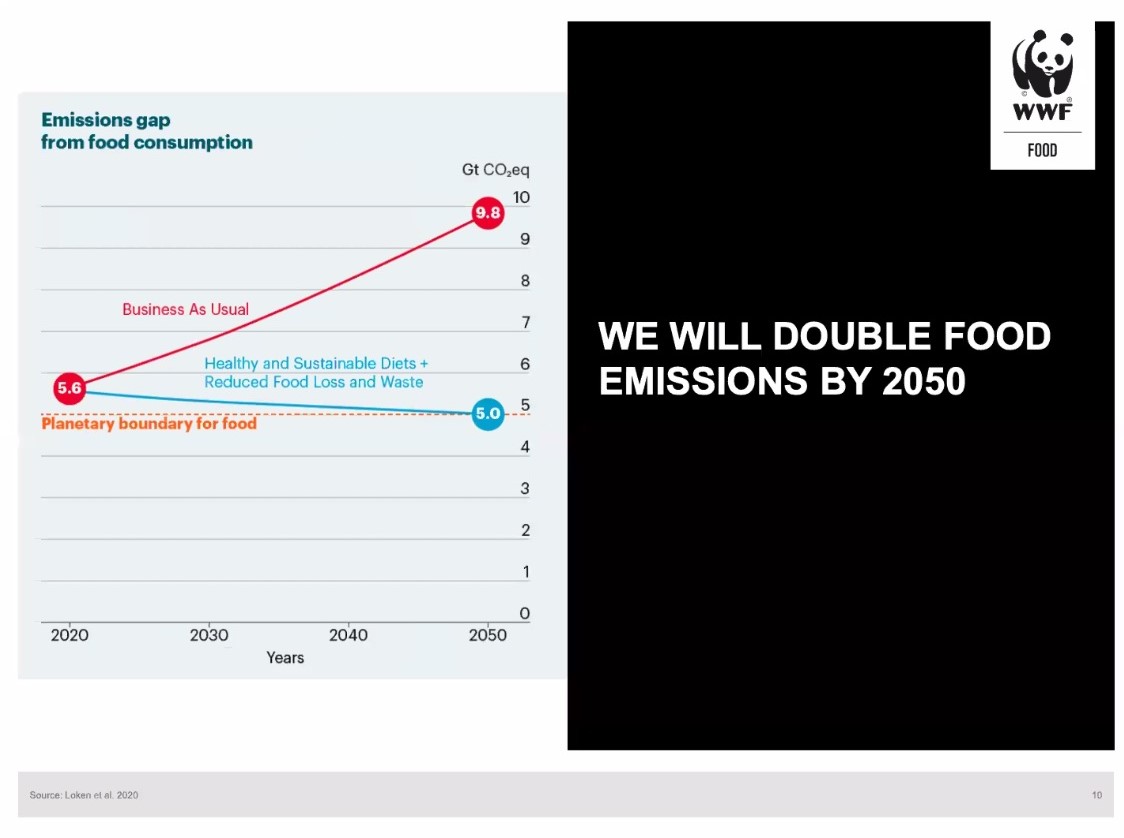Vegetables shouldn’t be garnish, they should be the main course
by Patricia B. Mirasol
Sustainable diets can reduce food loss and waste, said chefs and experts in a recent discussion about sustainability in the hospitality industry. This alone would reduce the emissions gap from food consumption.
“Why are we only putting vegetables as a garnish or as a side dish? Why don’t we eat them? Why not put them at the center of our meal?,” asked Frank Fol, former chef/owner of Michelin-starred restaurant Sire Pynnock and initiator of the We’re Smart World project, which brings together people and companies who have a healthy, ecological, and sustainable approach to food.
At Saladplate’s Food and Hotel Digital Week, Mr. Fol shared that a trip to Thailand convinced him to make vegetables and fruits the center of his culinary practice. Thai stir-fry dishes are known for their use of scallions, cilantro, lemongrass, and basil—among other greens, herbs, and spices.
WHAT WE EAT MATTERS
Meanwhile, Brent Loken, global sustainability and food system scientist for the World Wildlife Fund, presented data that showed how healthy and sustainable diets can reduce food loss and waste. “We know that the food we put in our mouth affects our health—but how about the way it impacts the climate?”
 Different types of food impact our health and the environment to varying degrees. Unprocessed and processed red meat have the highest impact on our health and the environment; nuts, whole grains, vegetables, and fruits have the least. According to Mr. Loken, 24% of global emissions come from the food we eat and how it’s produced. If we do not change the status quo, emissions will double by 2050.
Different types of food impact our health and the environment to varying degrees. Unprocessed and processed red meat have the highest impact on our health and the environment; nuts, whole grains, vegetables, and fruits have the least. According to Mr. Loken, 24% of global emissions come from the food we eat and how it’s produced. If we do not change the status quo, emissions will double by 2050.
“Some types of food are good for people and also good for the economy. We need a radical shift from animals being the center of the course,” he said.
 ENERGY EFFICIENCY
ENERGY EFFICIENCY
Alberto Zanata, Chief Executive Officer of Electrolux Professionals, meanwhile, offered a practical tip for restaurateurs who want to be more energy efficient in their operations, specifically when it comes to purchasing equipment: “Don’t just look at purchasing cost. Look at the lifetime cost. Start to really ask how much it’s going to cost to run this product along the life. Have an overall vision of the investment you’re making.”
The CEO said that the hospitality industry consumes a lot of energy in their daily operations. Water, for instance, uses a lot of energy, and the more detergent one uses, the more water one consumes in the laundry. “Saving water is good for the planet, but it’s also good for profit.”
Chef Soon Pau Voon, a teaching fellow who teaches a sustainable cooking curriculum at Sunway University, encouraged more schools and stakeholders to adopt a similar curriculum. “Sustainability is such a big word, but at its core, it’s about meeting the needs of the present without compromising the needs of future generations.”
“It is the small things that make the difference. Switch off the gas. Turn off the faucet. Don’t run the electricity the entire day,” Mr. Soon added.



